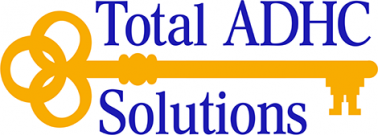Therapeutic Activities in Adult Day Care Programs
The Activities program in Adult Day Health and Adult Day Care is probably the most important and least appreciated for its therapeutic value. Unfortunately this may begin with the Activity Director (AD) and be perpetuated by other staff as other programs or treatments take precedence over attendance in an activity. A good activities program for the elderly and disabled will be therapeutic in nature, not just intended to keep the participant “busy” (also known as diversionary activities). It is of the utmost importance that the AD understand this distinction while he or she is planning activities for the month. Prior to building the monthly calendar of activities, the AD should take into account the participants who will be served. This knowledge is gained by completing a thorough assessment in regular intervals for each participant.
Through the assessment, the AD will identify goals for the participant–these goals may be rehabilitative, preventative or intended to improve their mental/emotional well-being. Appropriate activities will be generated and participants who would most benefit from these activities can be included in the group. It is important that the AD understand that almost every activity that they are currently providing to participants in Adult Day Health/Adult Day Care has some therapeutic value. It is only when the AD forgets this during the planning and implementation process that the program suffers. It is also imperative that the participant’s limitations and abilities are taken into account when planning each activity.
Let’ s take the ubiquitous or ever-present and much-loved game of BINGO. Most AD’s would say that BINGO is mostly diversionary in nature. (Or would just tell me the participants like it, keeps them coming back and fills up a good chunk of the monthly required calendar!) But BINGO can be therapeutic in nature. The game of BINGO encourages socialization, competition, pattern recognition, number and letter recognition, hand-eye coordination and fine motor skills, to name a few. The game of BINGO can be easily adapted as well, either individually or as a group, so that all who would gain enjoyment (and therapeutic value!) from it can. For those who have difficulty with sight, large print BINGO boards are available. Participants who have difficulty picking up small items due to arthritis or other impairments can be given larger or thicker chips with which to mark their boards. Participants with cognitive difficulties can be placed on a team with a less cognitively impaired (and willing) individual or paired with a program aide or volunteer. BINGO games are also available that use pictures instead of numbers and letters.
It’s important to remember that the Activity Program in Adult Day Services is as crucial to the program and to a participant’s well-being as any other service provided in the center. This begins with the Activity Director who must write an individualized care plan for the participant and create a therapeutic activity program for the participants based on a detailed and thorough assessment.
There are multiple tools available to support the Activity Coordinator in Adult Day Health and Adult Day Care. Total ADHC Solutions has many tools to support the AD including forms for assessment, Activity Program Manual for Adult Day Services and Care Plan Manual for Activities in Adult Day Services.
Total ADHC Solutions: www.totaladhc.com
